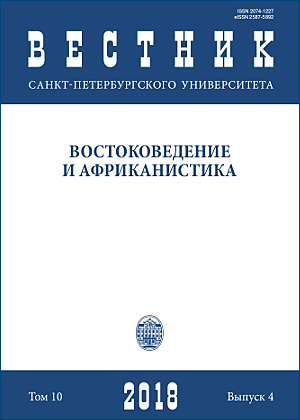The concept and fiction peculiarity of the novel “My Brother’s Story” by Ömer Zülfü Livaneli
DOI:
https://doi.org/10.21638/spbu13.2018.405Abstract
In this article we analyze the main peculiarities of mechanisms of plot development in the novel “My Brother’s Story” («Kardeşimin hikâyes"i») by Ömer Zülfü Livaneli (translation by A. Avrutina). The novel consists from two parts: “I” and “Mehmed”. The author exploits the structure of the novel-frame, where the role of "frame" is acted by a detective story. The main content of the work is the study of the spiritual world of modern man, the fate of the hermit hero Ahmed / Mehmed Arslan. After going through a series of life and moral trials, the hero realizes his insignificance and commits suicide. In the system of characters the images of the engineer and the journalist play a huge role, as researchers of the nature of the human soul. The chronotope of the work includes the whole world, Turkey and Russia. The antithesis of "the city/the capital vs province" becomes a key one. The image of Russia puts together of a whole chain of literary reminiscences and associations that emphasize the richness of its cultural potential. The postmodern style of the work reveals itself both at the level of content and structure of the work. Leading in the work are such features of poetry, like intertextuality, the mixing of time and space, abandoning the traditional "me" orientation to a multiplicity of interpretations of the text, the fundamental systematic character, the incompleteness, the openness of the design, the fragmentary nature of the game.
Keywords:
Turkish literature, prose, Ömer Zülfü Livaneli, the frame-novel, postmodernism
Downloads
References
Downloads
Published
How to Cite
Issue
Section
License
Articles of "Vestnik of Saint Petersburg University. Asian and African Studies" are open access distributed under the terms of the License Agreement with Saint Petersburg State University, which permits to the authors unrestricted distribution and self-archiving free of charge.





